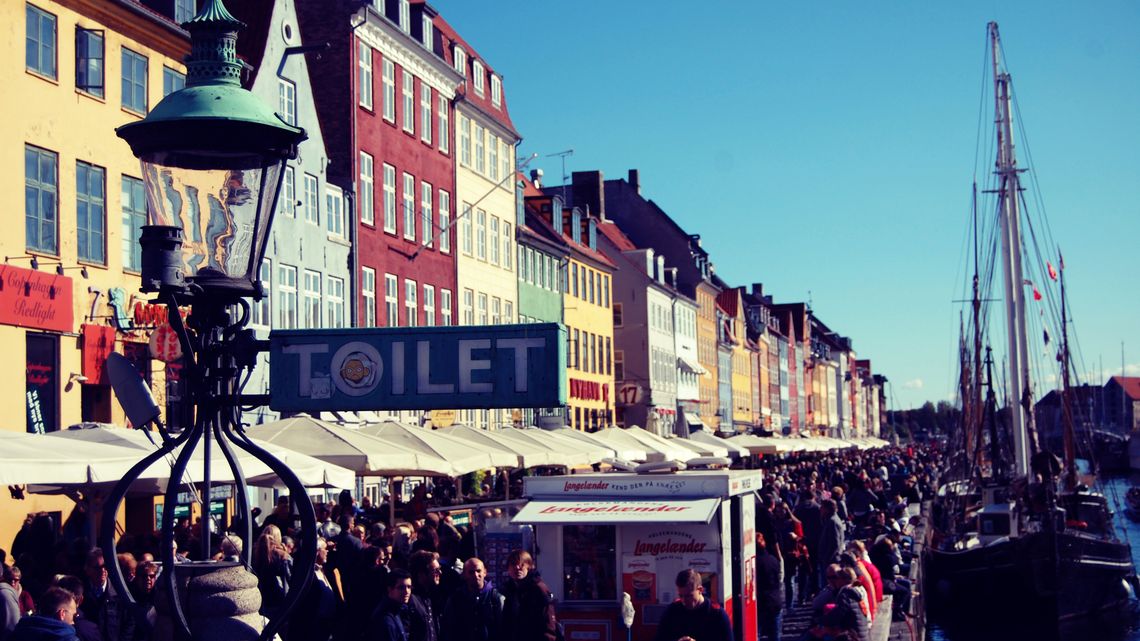
Answers to 5 Typical Questions from Non-Danes Working with Danes
Are you a non-Dane collaborating with Danes – and are you curious about the Danish working culture, lifestyle, and way of communicating? Then read on!
In this blog post, Annette Dahl, CEO and intercultural trainer in C3, provides the answers to 5 typical questions from internationals working with Danes.
Annette, being Danish herself, has worked and lived across the world and trained people of various nationalities in Danish culture.
You will, among others, learn how Danes look upon hierarchy, how to build up a relationship to a Danish colleague, and what Danes typically do in their spare time.
1. How do Danes look upon hierarchy in organizations? And which leadership style is typical Danish?
In Denmark, we care a lot about equality. It’s a concept deeply rooted in our culture. The power distance in Denmark is low, which means that there’s a short distance between people’s power and positions. So hierarchy is really not very important to us.Actually, Danes prefer that it’s not visible who has power and authority. We like that our prime minister is scooping snow in front of his house and that our queen is down-to-earth.
Of course, there are some industries where hierarchy is more important, for instance in the military. But the tendency in the Danish society is that we prefer to smooth out the differences and not show our status or position in a very direct way.
This view on hierarchy is not surprisingly influencing our working culture. Most Danish organizations have a very flat structure, and there’s often a lot of interaction between leaders and employees.
A classical Danish leader has a democratic, inclusive and coaching leadership style, and the employees get plenty of responsibility. And responsibility is definitely something Danish employees like to be given!
We know that our leader has the final say, but it makes us feel appreciated if he/she includes us in the decision-making process.
The concept of equality in the Danish culture is also influencing the way we address each other. Most people in Denmark use first names no matter if it’s the bank manager, the university professor, or the new boss we’re talking to. And titles don’t mean a lot to us. If you’re addressing people with titles, it’s disturbing our concept of equality, and most Danes don’t like that.
2. What should I be aware of when I’m communicating and collaborating with a Danish colleague?
First of all, you should know that Danes, generally speaking, are focused on finding a solution as quickly as possible. We like getting straight to the point and we don’t want to waste the time with too much “chitchat”. So you may experience that Danes skip the softer things such as building up relationships and getting to know each other.Your Danish colleagues find this approach good, efficient and professional. You may have another interpretation. In C3 Consulting, we experience that many internationals find the very direct Danish approach quite impolite, superficial and maybe a little cold.
But if a Danish colleague seems impolite or cold, then remember that it’s probably not intentionally. And be aware that it’s not because we don’t like our colleagues if we’re rushing out of the office at 4 PM sharp!
Most Danes just have some hard-core priorities at work. It’s about getting the job done, so we can go home to our families. We make a clear distinction between our professional life and our private life, and that’s something you’ll notice for sure when working with Danes.
On the other hand, we love to have fun and joke with each other, so humour is always a good way to reach the Danes.
You might also experience that Danish employees ask a lot of questions, including critical ones. That’s because we often see it as a part of our job to be critical and express our opinion. We see this approach as “being constructive” and we understand critique, disagreement and discussion as good things at our workplace.
So when you’re collaborating with Danes and for instance attending a meeting, your Danish colleagues and managers will typically expect you to speak out when you agree or disagree. Keep in mind here that expressing dissenting opinions at a Danish workplace is not influencing the personal relationships. So try to see the criticism as something strictly professional and not as a personal attack.
A third thing to be aware of when collaborating with Danes: Many of your Danish colleagues and managers will expect you to be proactive.
This means that when you’ve solved a task, you’re expected to find a new task by yourself. The proactive approach is about seeking responsibility and starting tasks even though they’re not clearly defined yet. It’s perfectly okay to ask your boss or colleagues what would be good to do next, but don’t sit and wait for others to take the initiative!
3. What are Danes doing in their spare time?
Work-life-balance is a keyword, when we’re talking spare time in Denmark. This concept is a part of many people’s philosophy of life. We really value our spare time and we appreciate having time for other things besides work. This explains why many of us have this direct approach when we’re at work. We’re in a hurry to get home and enjoy our spare time.We use a lot of our spare time in our homes, and our homes are important to us. It’s normal for Danes to be interested in furnishing and aesthetics, and it makes us happy when we’re satisfied with the way our home looks. Therefore, many Danish people spend their weekends at home taking care of their house and garden together with their closest family.
When not at home, Danes spend a great deal of their spare time engaging in sports. We do a lot of sports, and it has actually become a matter of course to be engaged in some kind of physical activity.
Running is almost a Danish national sport, which you will notice as soon as you enter a Danish forest. We are one of the populations in the world with the highest amount of completed Ironmen compared to the number of inhabitants. Maybe this fact says quite a bit about our culture!
4. What is it important to know about Danish culture when coming to Denmark?
Danes are very private people. We don’t speak to each other in the supermarket queue and we prefer to have our own seat in the bus. So if you want to be polite to a Dane, you should, as a rule of thumb, keep a little distance!Be aware that at the first meeting, or when we don’t know people well, we prefer to avoid too much body contact, cheek kissing, etc. We shake hands and it’s good if the handshake is quite firm.
A classical Dane is not so keen on private questions in the first conversation, for instance about marriage and kids. These are topics we’d rather talk about when we know each other better.
So, what to talk about? When you meet a Dane for the first time, you could start by talking about the weather, foods or work-related stuff. You could also ask about the Danish welfare system, which most Danes are proud of and happy to talk about.
In general, don't be put off if the Danes you encounter seem very private. Even though Danes are private people, most Danes would really like to help. You just need to take the initiative and ask for help if you need it.
5. How do I build up trust and relationships to my Danish colleagues?
When it comes to trust and relationships, Denmark is quite special compared to many other places around the world. Actually, Denmark is often at the top of the list when measuring social trust in different countries.We basically trust each other, and this also applies to our workplace. For instance, we trust that new colleagues have the exams and experiences, they tell us they have. And we don’t spend much time checking up on people. We trust that everyone is doing as agreed upon.
Therefore, few Danes find it necessary to build up trust and relationships when meeting new colleagues or business partners. This is in contrast to many other societies, where it’s crucial to build up strong personal relationships before you even start doing business.
A downside to this is that many internationals find it hard to get to know the Danes. Danish colleagues rarely take the initiative to grab a beer after work or to invite a new colleague home for dinner.
So a piece of advice, if you would like to get to know your Danish colleague: Be curious, open-minded, and outreaching. You shouldn’t sit and wait for a Dane to invite you out. Make the first move. That's the best approach, when you want to build a relationship to a Danish colleague.
Want to know more?
- Read about our Danish cultural training for international employees in Denmark or for local staff in your global organization
- Contact us for a chat about how we can address your Danish cultural training needs
- Read more about C3’s approach to culture and cultural differences here
- Want more inspiration? Follow us on LinkedIn or sign up for our newsletter using the form below

